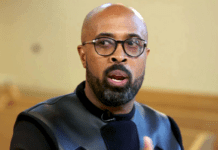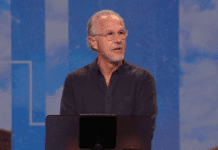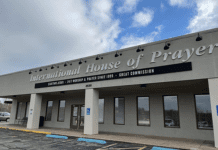The episode sheds light on just how Mastriano mixes faith and government by quashing dissent, even dissent coming from Christians, on religious grounds.
That approach still troubles the Rev. Timothy Seitz-Brown, a Lutheran pastor in Pennsylvania’s Lower Susquehanna Synod who regularly participates in activism at the state Capitol.
“I’m concerned, if he gets elected, what I’m going to be risking” by continuing with activism, Seitz-Brown said. “Is (Mastriano) going to treat clergy like me, that he disagrees with, with a hard heart and soft feet, or is he going to have a soft heart and at least listen a little bit?”
Critics have also pointed out that Mastriano, who was in the crowd outside the U.S. Capitol during the Jan. 6 insurrection and spoke at “Jericho Marches” that denied the results of the 2020 election in the days before the attack, has not shown the deference to authority he insists Paul demanded. (Mastriano has insisted he left the Capitol grounds when things turned violent, although his exact account of the day has been disputed.)
The Rev. Taylor Berdahl, who signed the open letter and now serves as pastor of St. Matthew Lutheran Church in nearby Hanover, said the ad was meant to be a defense of faith, not an attack on Mastriano. The letter, she said, was “far more about ideas and faithfulness to the theological witness of what we have some responsibility to maintain and teach than about the person of Mastriano.”
But she took issue with the candidate’s interpretation of Romans 13. Reading it through Luther’s views, Berdahl argued that while Christians should have “a respect for those who have government authority,” Jesus Christ models the need to voice faithful dissent when necessary.
“In the way that Jesus did in his lifetime, when there is overreach of government, when there is oppression enacted by governments, our faith also moves us to speak out against those things that are harming the people that we are called to love and serve on behalf of Jesus Christ,” she said.
She added: “We worship God. We do not worship our elected officials.”
This story was produced under a grant from the Stiefel Freethought Foundation and presented as part of the Democracy Day journalism collaborative, a nationwide effort to shine a light on the threats and opportunities facing American democracy. Read more at usdemocracyday.org.
This article originally appeared on ReligionNews.com.












